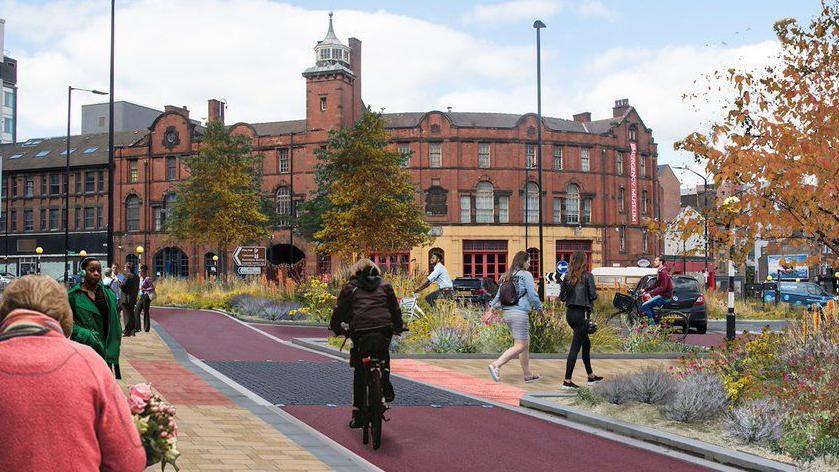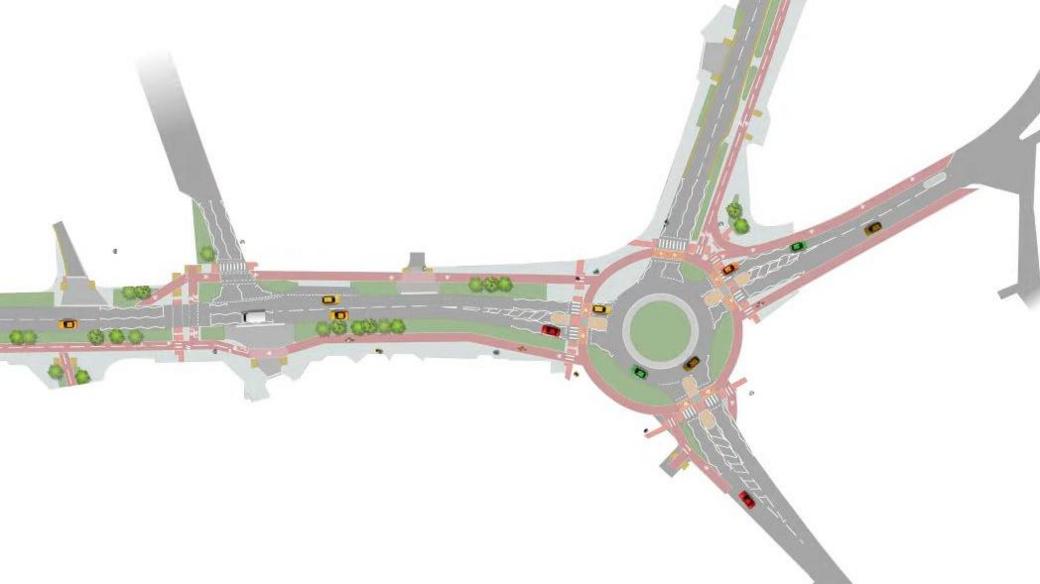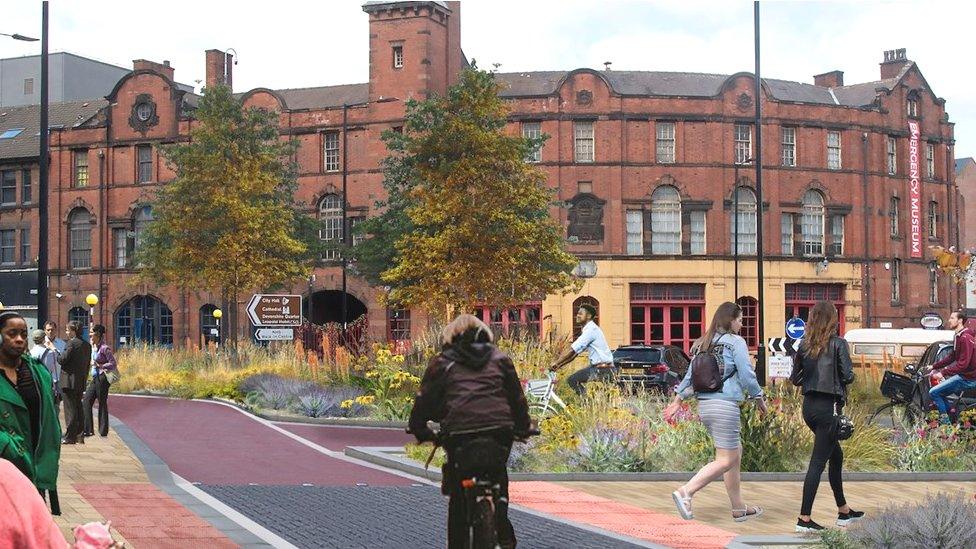Mixed views on city's new Dutch-style roundabout

Work on the new roundabout will be completed in October, the council says
- Published
A city's new Dutch-style roundabout, which will give priority to cyclists and pedestrians, has received mixed reactions.
Work on the roundabout, at West Bar in Sheffield, started in April last year and is now set for completion in October.
While some residents have welcomed the design, others feared the unusual layout could cause confusion.
Road safety charities have hailed the plans but warned that educating drivers and providing connections to cycle lanes beyond the city centre would be crucial.
As part of the project, zebra crossings will be installed at each arm of the roundabout, giving pedestrians priority over vehicles.
There will also be a one-way segregated cycle track, moving clockwise, with vehicles required to give way at all arms of the roundabout.
Sheffield City Council's Ben Miskell, chair of the transport, regeneration and climate policy committee, said: “For too long people wanting to cross West Bar roundabout to get around the city have had to wait for a gap in the traffic to do so in a safe manner.
"The changes we are delivering will make it easier for those on foot or on their bike in two fantastic new ways.”
The plans shared on the council's social media platforms have been met with cautious optimism by some and scepticism by others.
Listen: Hear more about the new circular spectacle as well as residents' reaction
One person commented: "I'm all for these roundabouts, but I'm concerned that drivers don't know how to negotiate them."
Another said: "I'm looking forward to this being finished.
"It will make it much safer and pleasanter to cycle through that area."
BBC Radio Sheffield listeners also shared their thoughts, with Richard, from Kiveton Park, voicing concerns over a similar scheme in Cambridge.
He said: "This roundabout was proven to be unsafe in Cambridge.
"Someone needs to tell the council that Sheffield is built on seven very high hills and most people can't ride a cycle here."
Another listener said they had lived in Cambridge for two years and described the roundabout as "chaos" with frequent collisions.
They wrote: "On average it put 45 minutes on a journey. Terrible idea, locals avoid it and call it crazy."

An artist's impression of the new roundabout
The Royal Society for the Prevention of Accidents (RoSPA) said similar roundabouts in the Netherlands had reduced serious incidents by about 46%.
Caitlin Taylor, road safety manager at RoSPA, said: "Giving equal precedence to all road users such as cyclists, as well as pedestrians, creates a more inclusive environment while maintaining smooth vehicle flow.
"However, educating drivers will be crucial to prevent confusion and incidents, and clear signage and awareness campaigns will also be essential to ensure all road users understand the new layout.”
Cycling UK said while the plans were a positive step in the right direction, well-designed cycle lanes connected to networks beyond the city centre were crucial.
The charity's senior policy officer, Sheffield-based Monica Scigliano, said: “While these changes help make it safer for people cycling, unless they’re part of a comprehensive, joined-up network of safe cycle lanes, we won’t see a surge in people getting on their bikes.
“If we truly want to encourage more people to make their everyday local journeys by bike, it’s crucial that well-designed cycle lanes connect to other local networks beyond the city centre.”
According to the council, the roundabout is part of wider plans to improve sustainable links between the city centre, Kelham Island and Neepsend.
Until 18 October, diversion signs will be in place while resurfacing work is under way, it added.
Listen to highlights from South Yorkshire on BBC Sounds, catch up with the latest episode of Look North or tell us a story you think we should be covering here, external.
Related topics
- Published28 February 2023
